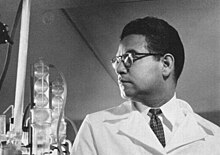
Inventor is the person who thinks, creates, conceives, builds or develops something that did not exist before. The word "inventor" comes from the Latin verb invenire, invent, find. Inventors usually have a creative and inventive personality. Inventors and inventors. The assessment and importance of inventions or discovery makes it very difficult to establish which are the most relevant. Many discoveries see their potential past the time when their benefits can be extended to all or most of society. One of the pioneers of some of the modern inventions was the Renaissance creator and artist Leonardo da Vinci; whose importance is not so much in their inventions, which due to the limitations of their time could not be proven useful or practical; but because he inaugurated the methodology of modern science, and in this sense is the pioneer of all the inventions made after him. He taught that nature should be looked at systematically and should be investigated with curious eyes, because "wisdom is the daughter of experience" and man can modify things through the projection and creation of mechanical instruments. Illustration and scientific development. The era called Enlightenment was a European cultural and intellectual movement (mainly in France, England and Germany) that developed from the mid-seventeenth century and having the French Revolution as a symbolic and problematic historical phenomenon. In some countries it lasted at least during the first years of the nineteenth century. It was named for its declared purpose to dispel the darkness of humanity through the lights of reason. The eighteenth century is known, for this reason, as the Century of Lights and the establishment of faith in progress. During the Enlightenment, advances were made in all fields, both cultural, social, scientific and technical. In physics, optics and mathematics, the advances were impressive thanks to the contributions of Sir Isaac Newton and many other scholars. Progress is made in botany and new fields such as political economy are inaugurated. Industrial and technological revolution. The Industrial Revolution was a time full of inventions. During the Industrial Revolution there was a radical economic, social and technological transformation. It began in the second half of the eighteenth century in the United Kingdom and extended a few decades later to much of Western Europe and North America and concluded between 1820 and 1840. During this period the greatest set of economic, technological and social transformations of the history of humanity since the Neolithic, which saw the transition from a rural economy based fundamentally on agriculture and commerce to an urban, industrialized and mechanized economy. Qualitative leaps are produced in relation to discoveries and inventions also during the Second Industrial Revolution, the Third Industrial Revolution and the so-called Fourth Industrial Revolution or Industry, all of which are also considered technological revolutions.